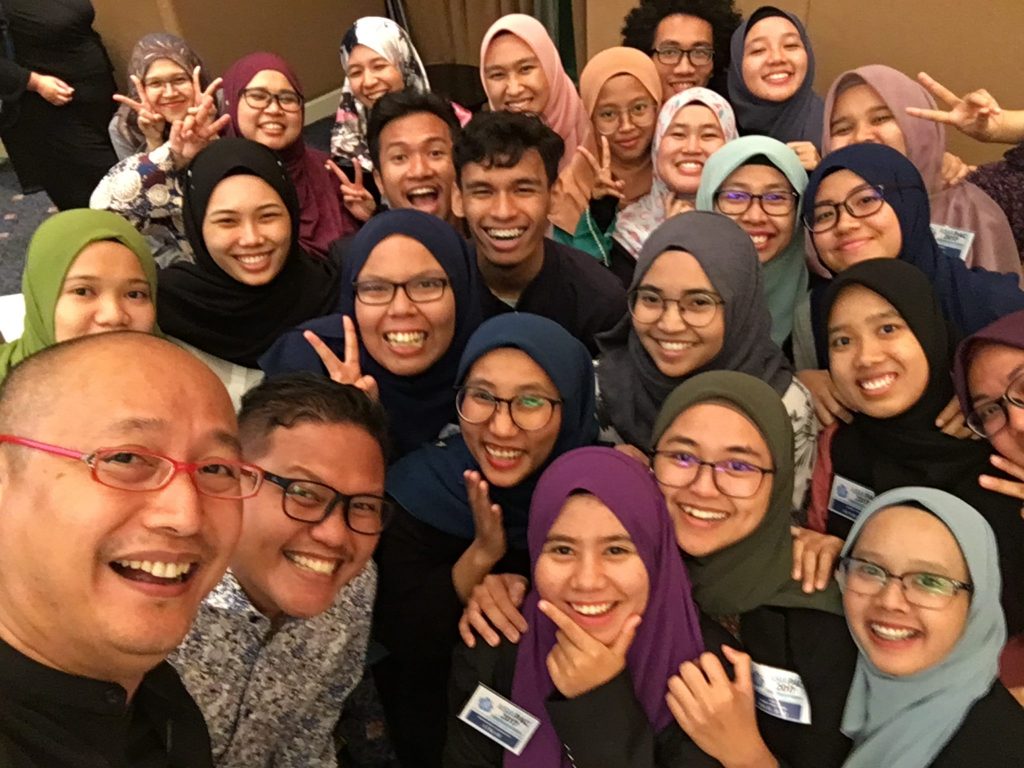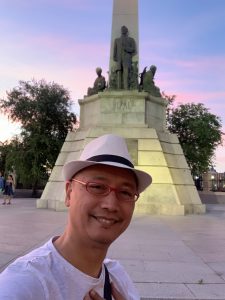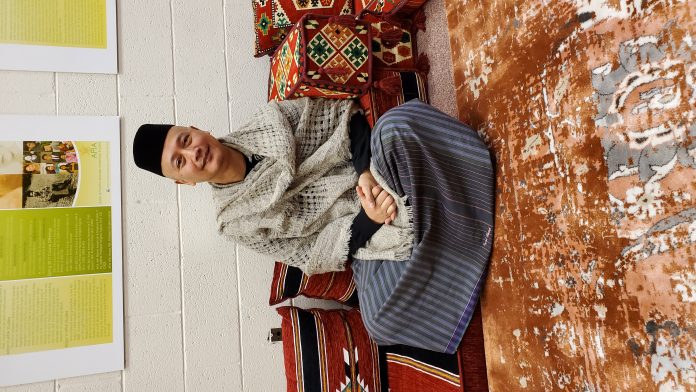For professor Francis Tanglao Aguas, the journey to becoming the head of the Asian and Pacific Islander American studies department was not always clear. Having lived in very diverse locations throughout his life — including Nigeria or California — coming to Virginia was a systemic shock. In Williamsburg, Aguas has created a space at the College of William and Mary that allows him to thrive and help students thrive, through his work in the theater, APIA studies and Africana studies departments.
“Helping to create APIA has been a life project,” Aguas said. “It has taken 15 years of my life — 15 years at William and Mary. We became an official minor in 2016 and in May 2019 we became an official major concentration under global studies.”
In detailing the history of the creation of the APIA studies department, Aguas gives credit to professor Deenesh Sohoni, who initially pioneered Asian American studies at the College.

“The process has been successful, because as its faculty leader, even when I was the only one, the students were always there to help” Aguas said. “In 2005, the only partner I could find was professor Deenesh Sohoni. He was instrumental as an inspiration, because when he came two years earlier in 2003, he had the foresight and chutzpah to ask the department of sociology to implement a course in Asian American studies: sociology 366.”
For most of Aguas’ time at the College, his instruction in APIA was relegated to leading independent studies for interested students. After years of accommodating these requests, by 2013 Aguas realized that continuing to do so was highly unsustainable.
“I had to teach classes and direct plays on top of independent studies, so I had to start turning students down,” Aguas said. “I then told an interested student, ‘bring me five or 10 students for whom I will do an independent study.’ He came back with a Facebook group of 200 members and that’s where it all snowballed. That group is what eventually became Asian American Student Initiative.”
One of Aguas’ primary motivators for cultivating diversity projects at the College was to ensure that internationalization and diversification could help students and professors of color thrive at a predominantly white institution.
Coming from educational systems in California, Aguas had grown accustomed to living in diverse spaces. Living in Virginia ultimately complicated that preference.
“Because I’m educated internationally and from California — when someone says to me ‘English literature’ or ‘American literature,’ it is already diverse,” Aguas said.
“Because I’m educated internationally and from California — when someone says to me ‘English literature’ or ‘American literature,’ it is already diverse,” Aguas said. “We Californians don’t make a distinction between black and white literature because we are educated beyond the binary. Whereas in locations such as Virginia, people are first being educated about the binary to acknowledge the existence of the other.”
As a result of his international education, Aguas feels comfortable crossing intersectional lines and fostering collaborative understanding between communities. At the University of California, Los Angeles, he was trained in Asian–American, Latin–American, Native–American and African–American theatre. Seeing his qualifications in theater, then-Director of Black Studies Jacquelyn McLendon invited Aguas to join the core faculty of her department, where he stayed until 2016. As a theater professor working in black studies, Aguas helped to develop a course entitled “Sex and Race in Plays and Films.”
In 2009, the black studies and the African studies departments started to merge into the Africana studies department, which Aguas was selected to direct in 2012. Having inherited the legacy of both programs, Aguas worked to ensure the growth of Africana studies, in spite of every bureaucratic hurdle.
“When I finished my four years as director of the program, we had 10 joint appointments,” Aguas said. “We also continued the struggle for space in Morton. When I was director, we only had one office and I had to share it with our adjuncts. Now half of Morton first floor is now Africana studies — a request put in place since McClendon led the department. It took 20 years to get these six or so rooms.”
Likewise, Aguas warns students to avoid criticizing Morton Hall because of its role in the College’s diverse and growing landscape. For him, a lot of the groundbreaking, important academic departments call the hall their home.
“The heart of what we do that is awesome and groundbreaking is at Morton Hall. Morton is the hip happening place. The building is not new or shiny, but the ideas are.”
“Morton Hall is a hallmark building at William and Mary,” Aguas said. “It is the home of gender, sexuality and women’s studies, it is the home of Africana studies and now it is the home of theatre and APIA. It is likewise the home of film studies, the Studio for Teaching and Learning. The heart of what we do that is awesome and groundbreaking is at Morton Hall. Morton is the hip happening place. The building is not new or shiny, but the ideas are.”

Before finally settling down in Williamsburg and at the College, Aguas has lived in Philippines, Nigeria and California. Coming from a family that dealt with sustained political and economic pressure to leave the Philippines during Ferdinand Marcos’ dictatorship, Aguas’ family did not have the opportunity to settle comfortably in their home country, rather establishing themselves in Nigeria.
“My parents were white-collar migrant workers,” Aguas said. “I come from a family that was pressured politically and economically by the Ferdinand Marcos dictatorship in the Philippines. Because of that, my parents took on jobs abroad. My aunt and uncle were medical doctors in Nigeria, so we pursued the ‘African dream.’”
Due to the fact that the Nigerian government possessed a great deal of oil wealth and needed educated employees after the British left without establishing an infrastructure for self-governance, Aguas’ family was able to find opportunity in the nascent Nigerian capital of Abuja.
“My parents saved up money to buy plane tickets for more siblings,” Aguas said. “My father brought my mother, and then they eventually brought me. There was no promise of a job — just like moving to any Western country. They would drive for 20 hours from Southeast Nigeria to Abuja, and they were fortunate enough to get a job during the time that the government was moving its capital from deeply congested Lagos to Abuja in the early ‘80s. We had no time for the American dream because the African dream promised more prosperity.”
After having directed “Our Lady of 121st Street” last year, Aguas is taking a break from directing shows at the College. Rather, his efforts have been focused on selecting a strong, diverse set of shows for the next four seasons. This process has involved chairing the selection committee, reading over 100 plays, and surveying 600 people to gauge preferences. The theater department has planned far enough ahead to ensure a smooth transition back to Phi Beta Kappa Memorial Hall.
For Aguas, his two favorite shows revolve around the Asian experience as portrayed in Western theater, which he considers fraught with problematic stereotypes.
“For me, two plays are life changing,” Aguas said. “One is ‘Miss Saigon’ and the other is ‘M. Butterfly.’ ‘Miss Saigon’ made me believe that I could be on Broadway because Lea Salonga — a Filipina — was the lead. Likewise, ‘M. Butterfly’ taught me that I wouldn’t want to be in ‘Miss Saigon’ because of how it portrays my community and the message it sends to Asian girls who want to be on Broadway, that the best lead for them is to be a prostitute who kills themselves for the love of a Westerner.”
In addition to his professorial commitments, Aguas also sponsors the Freeman Intern Fellowship, a College-sponsored grant program that grants stipends to students pursuing summer internship opportunities in Southeast Asia. Aguas sees the fellowship as a pivotal way for students to get involved, and urges students to consider applying so they can broaden their horizons in diverse environments.
“The Freeman intern fellowship program is important to me because I am able to share the joy and transformative power of being in diverse spaces with students so that they too can experience the magic that can come from living with the majority of people who are so unlike you which of course has been my experience wherever I go outside my home country of the Philippines,” Aguas said in a written statement.

